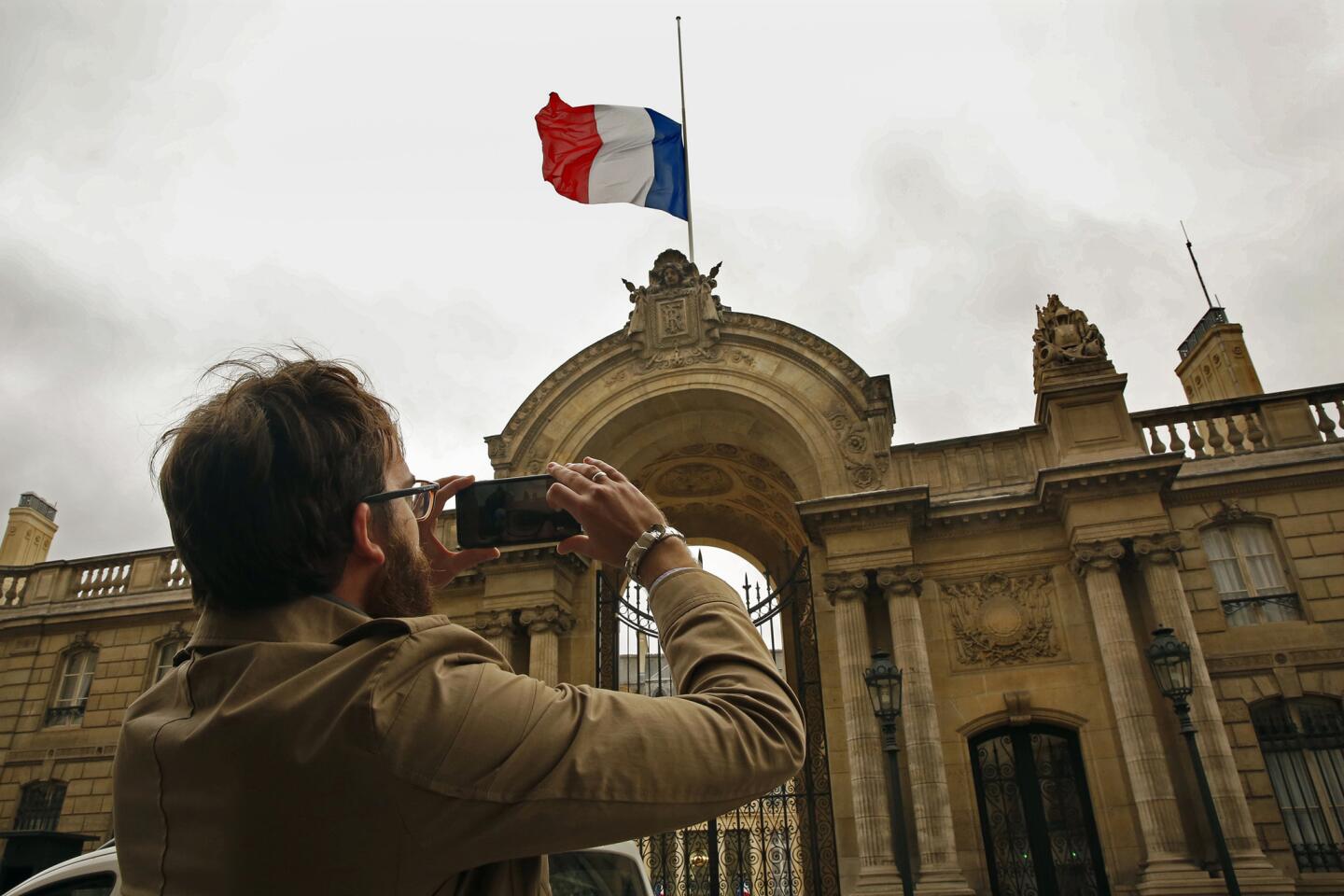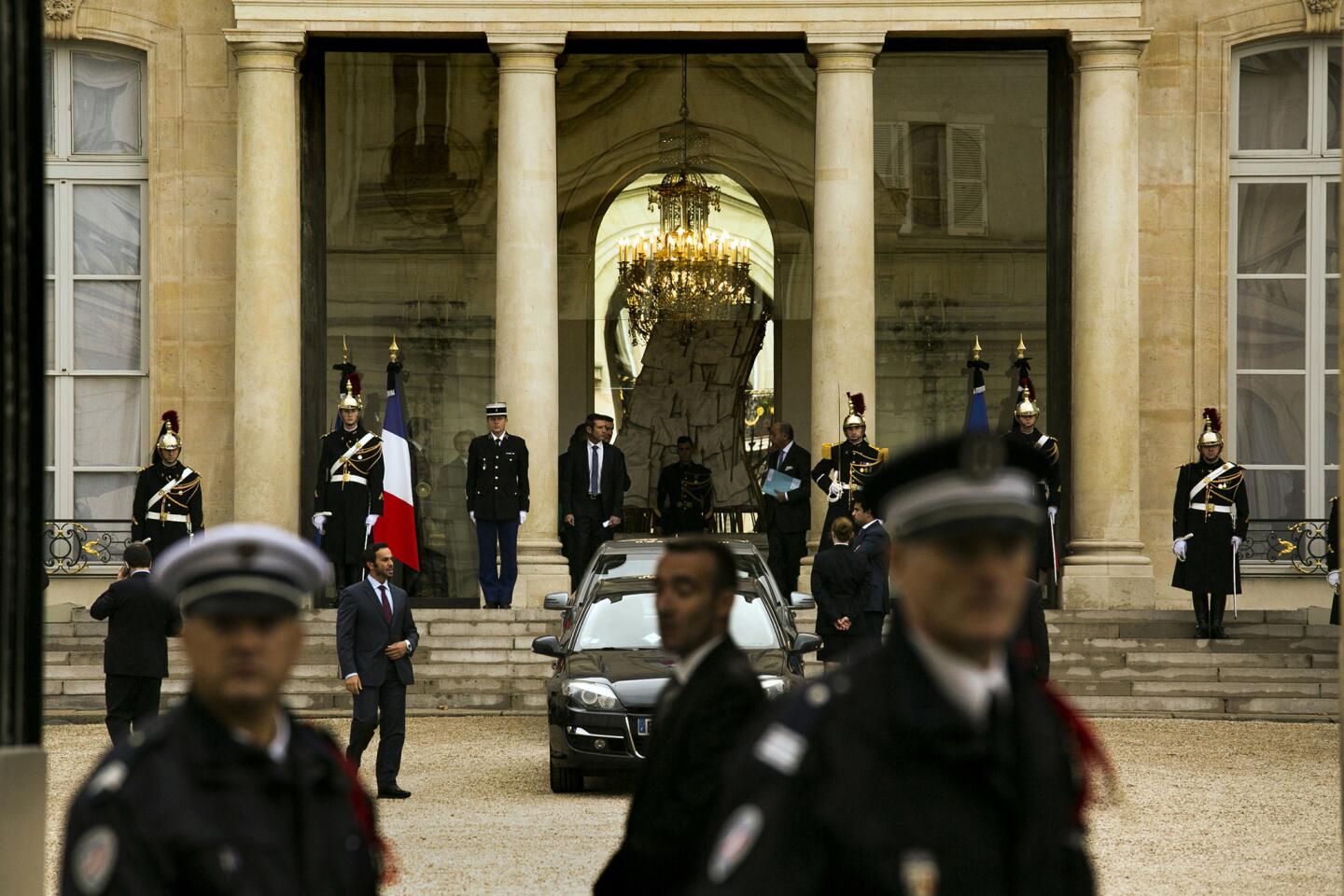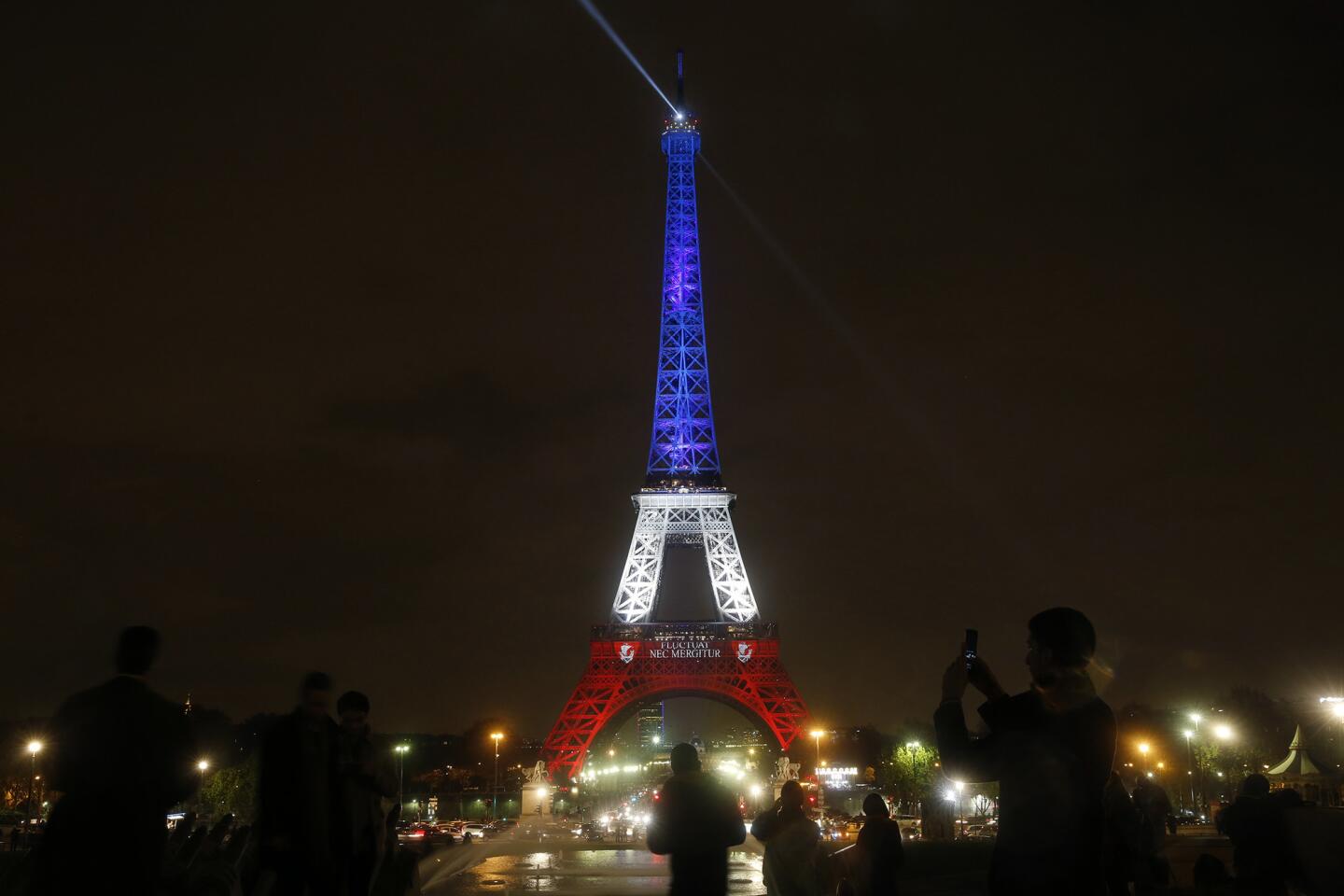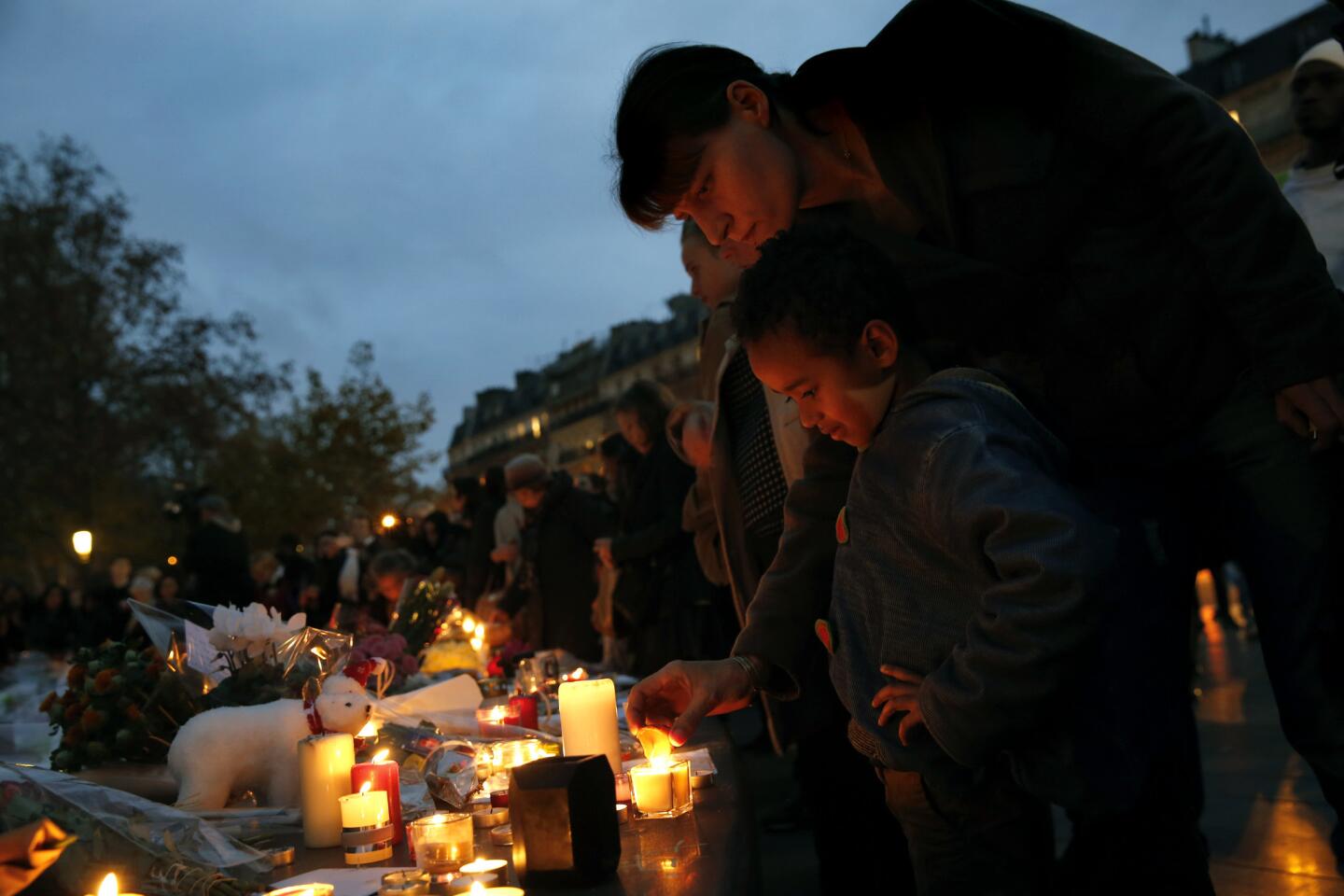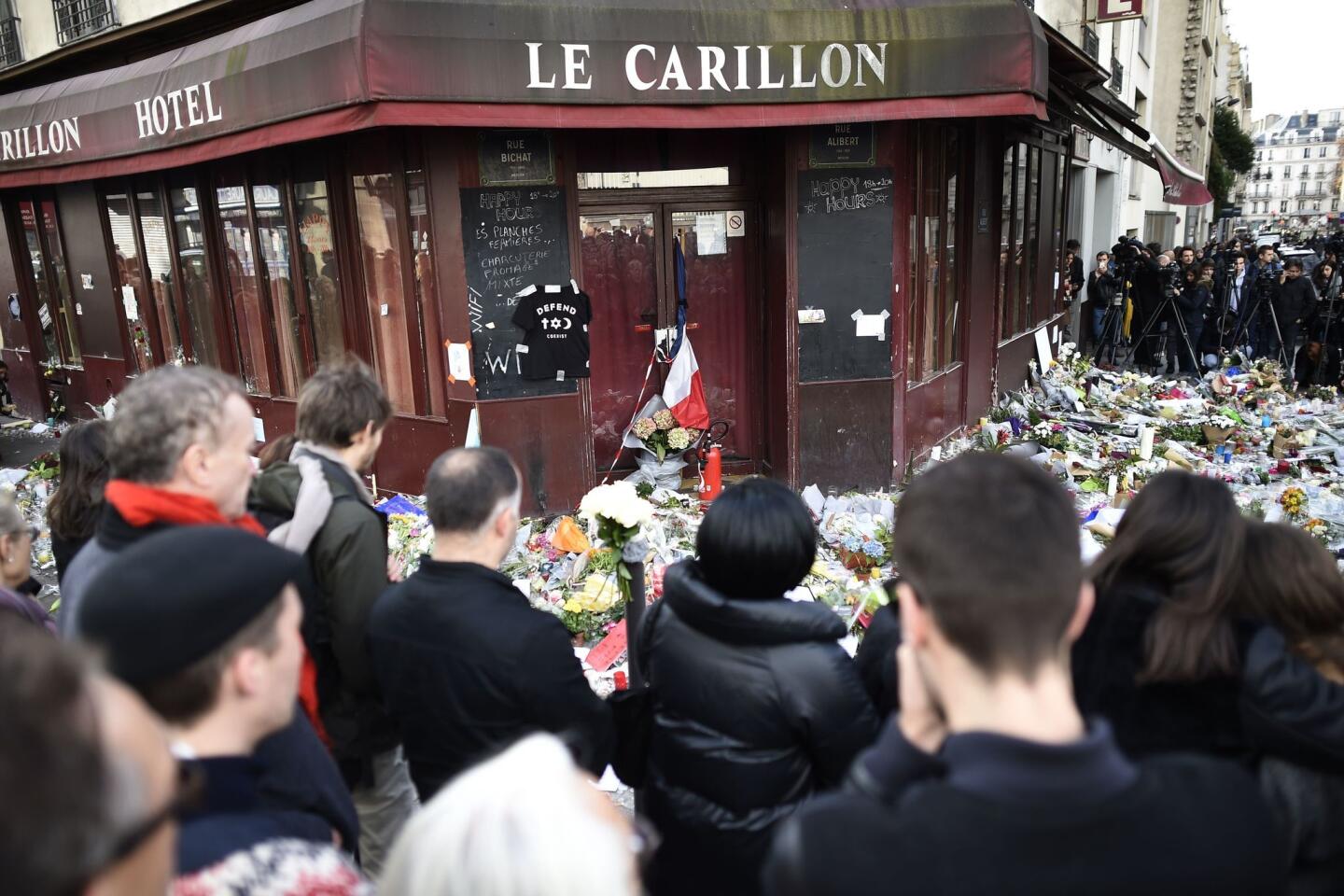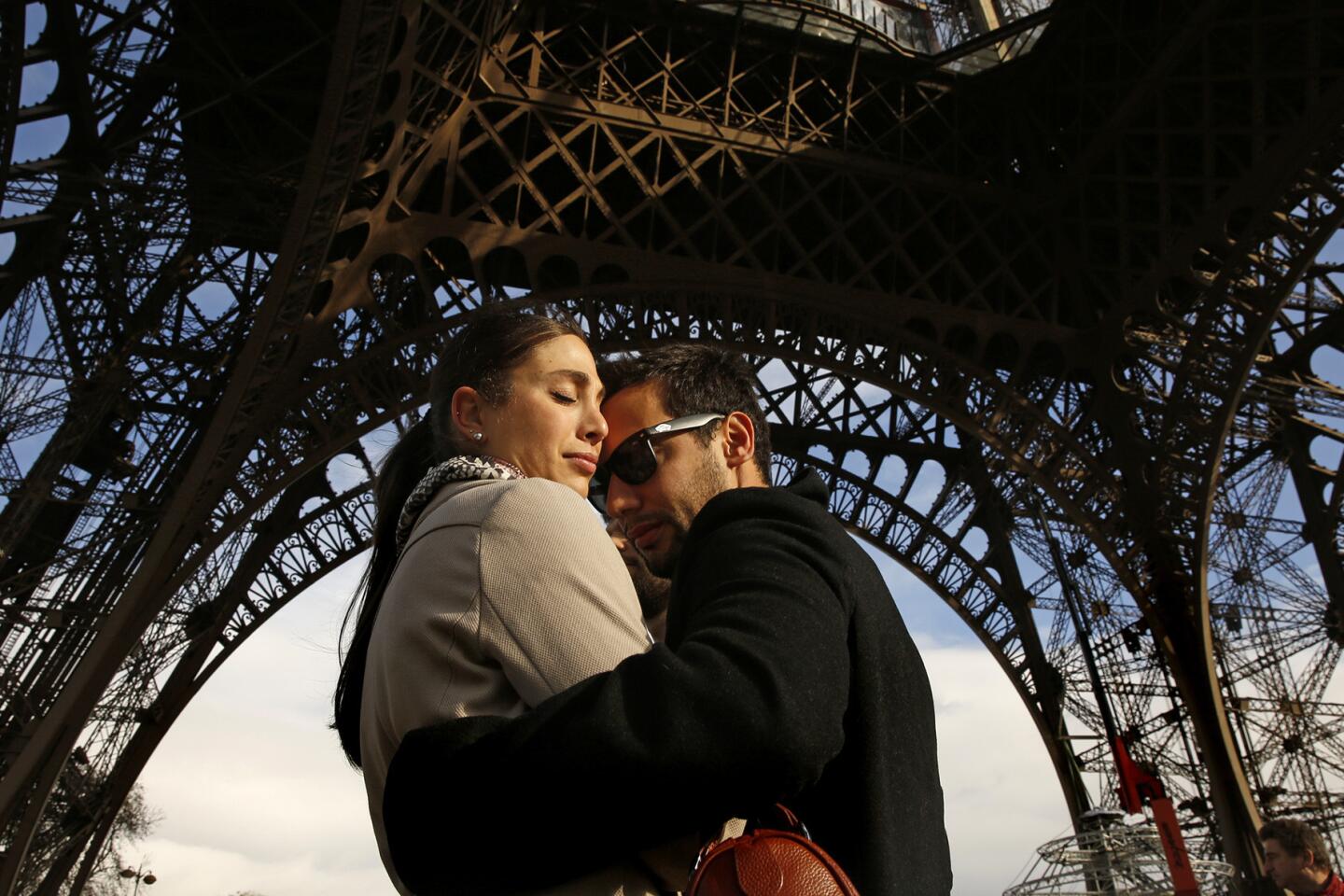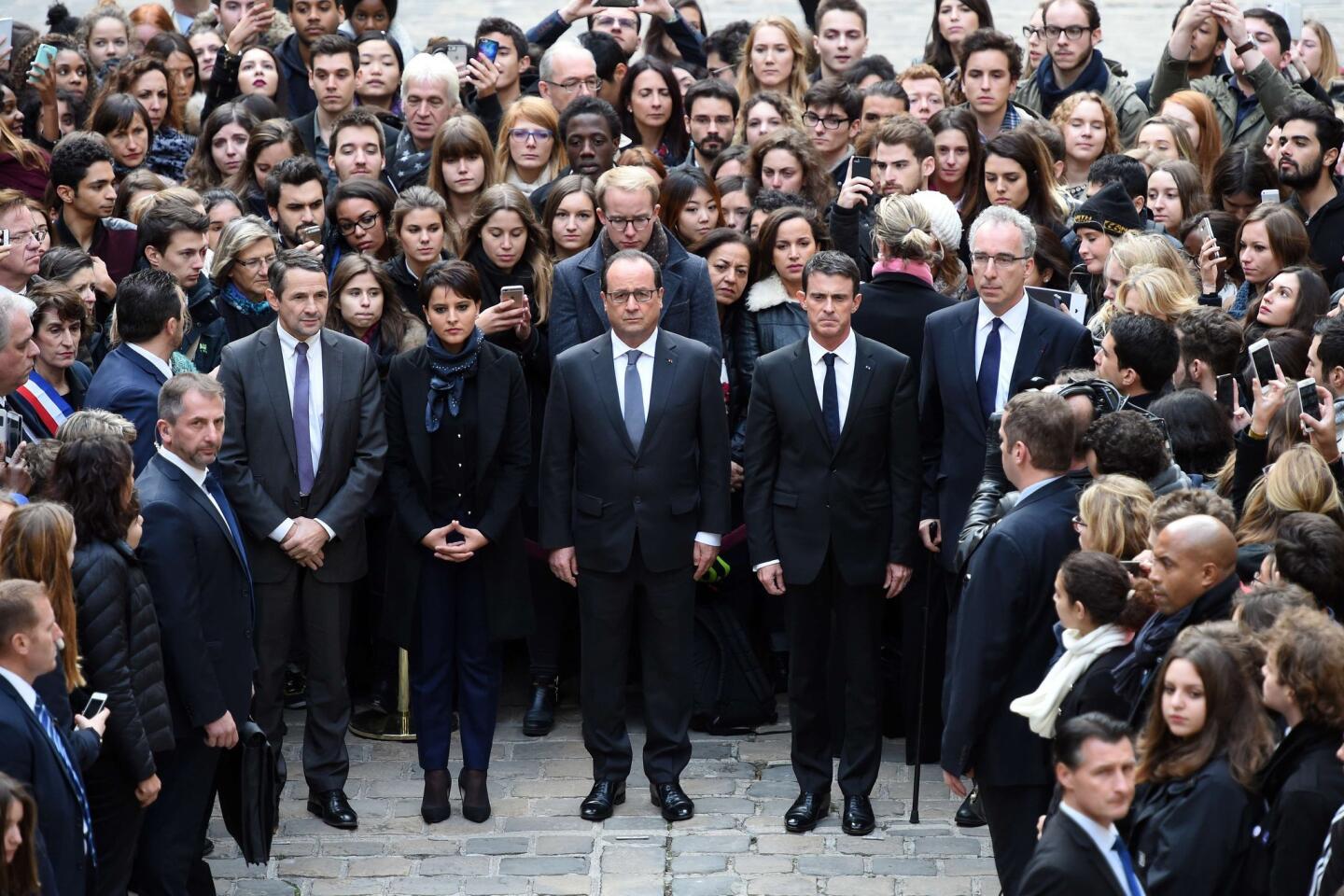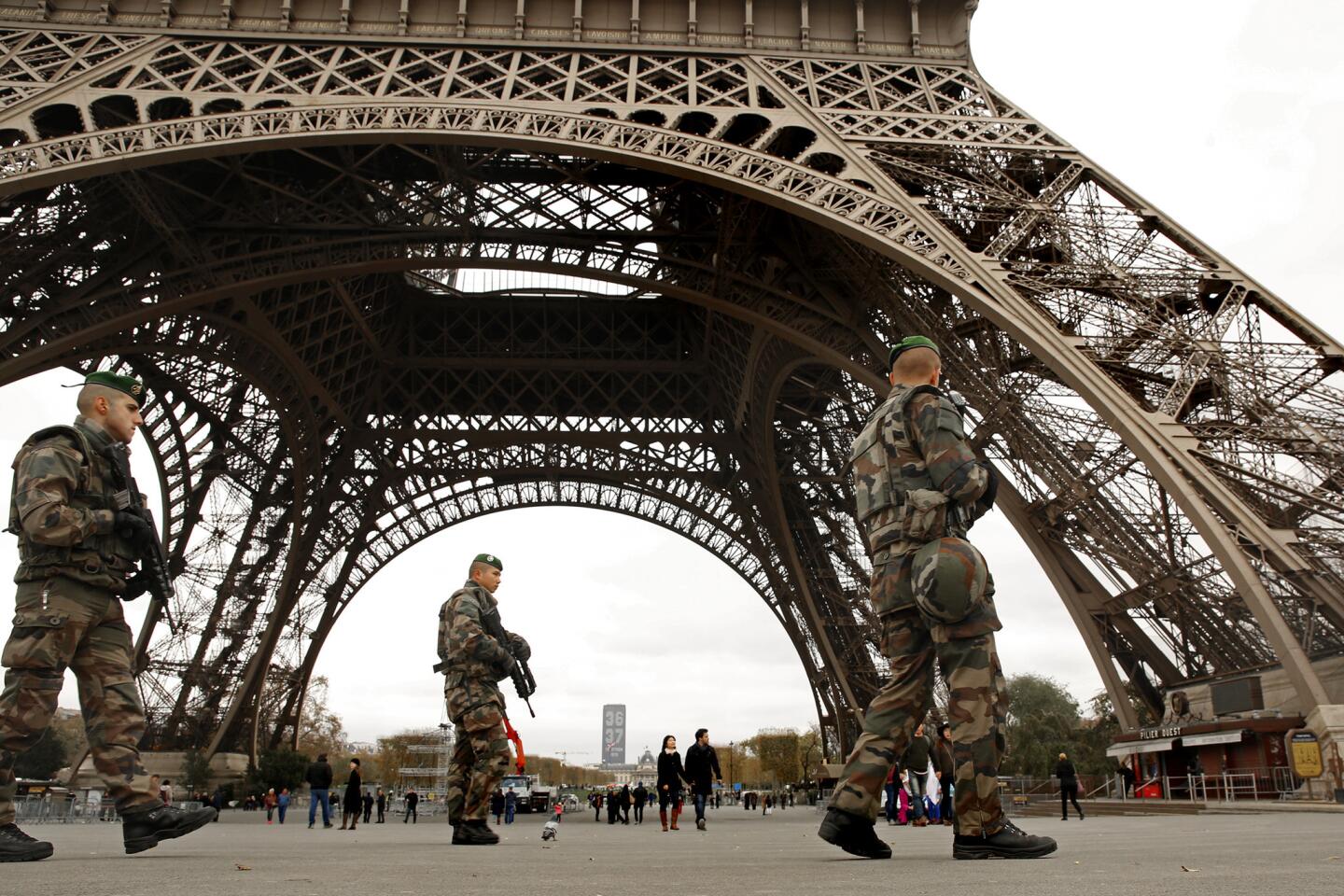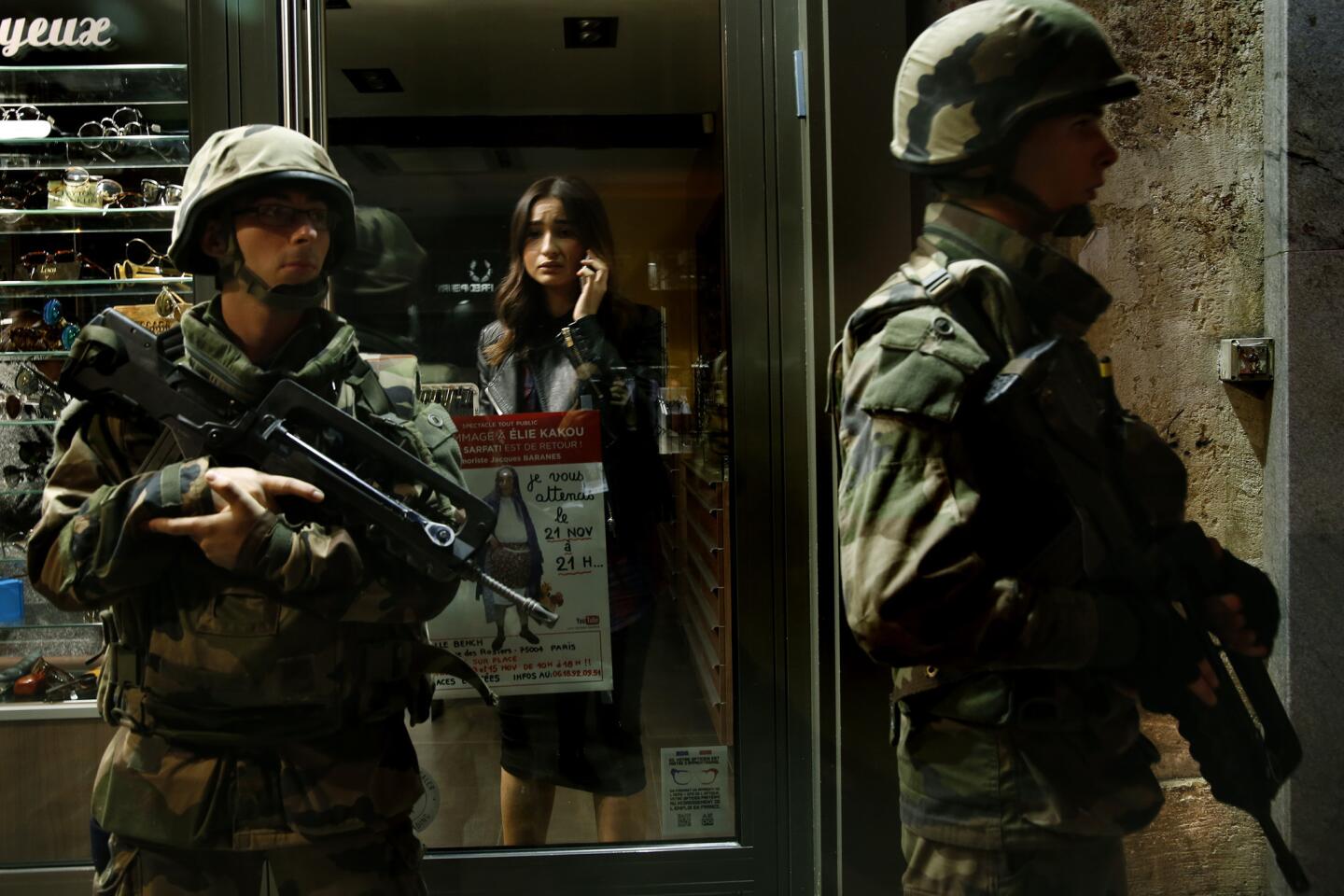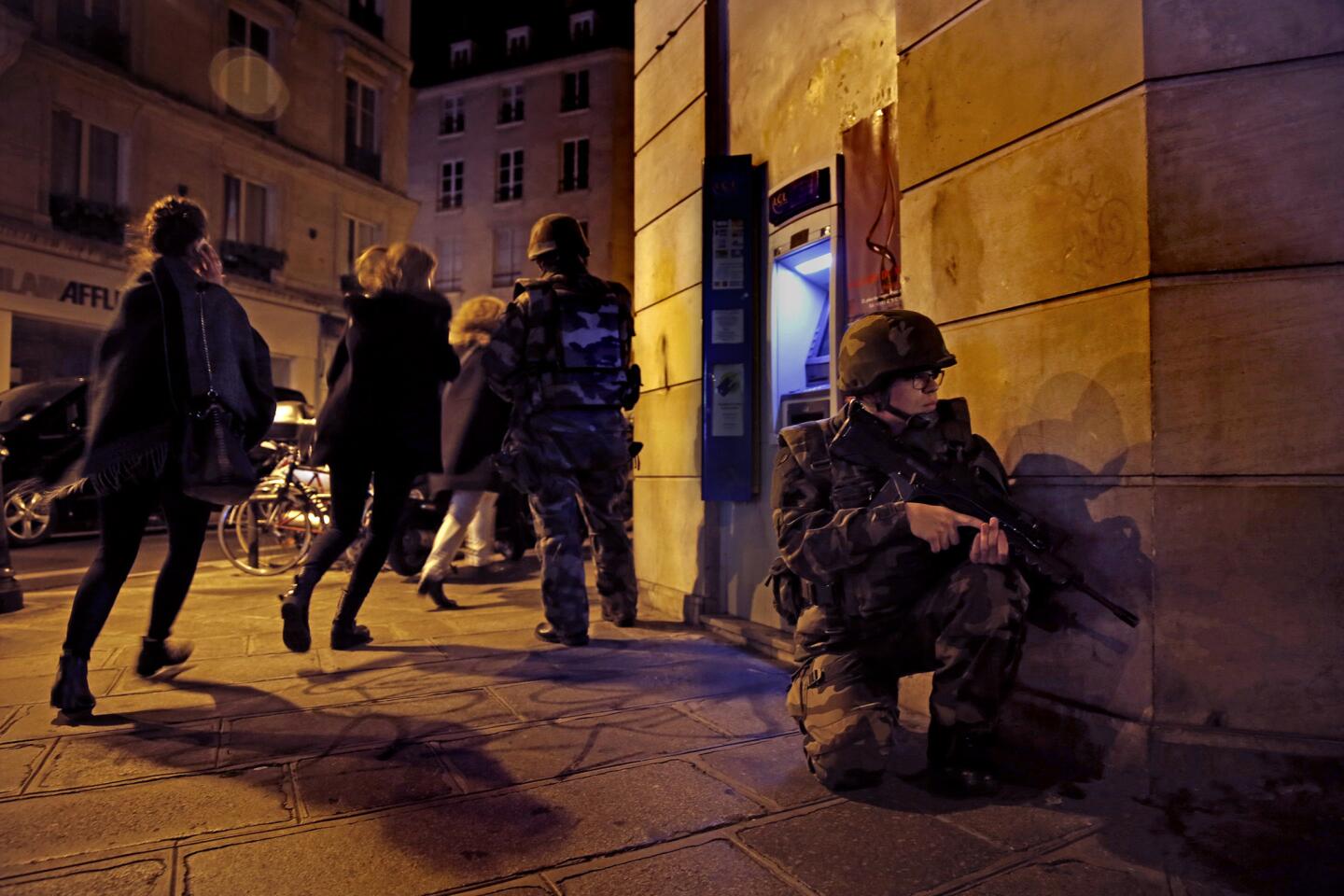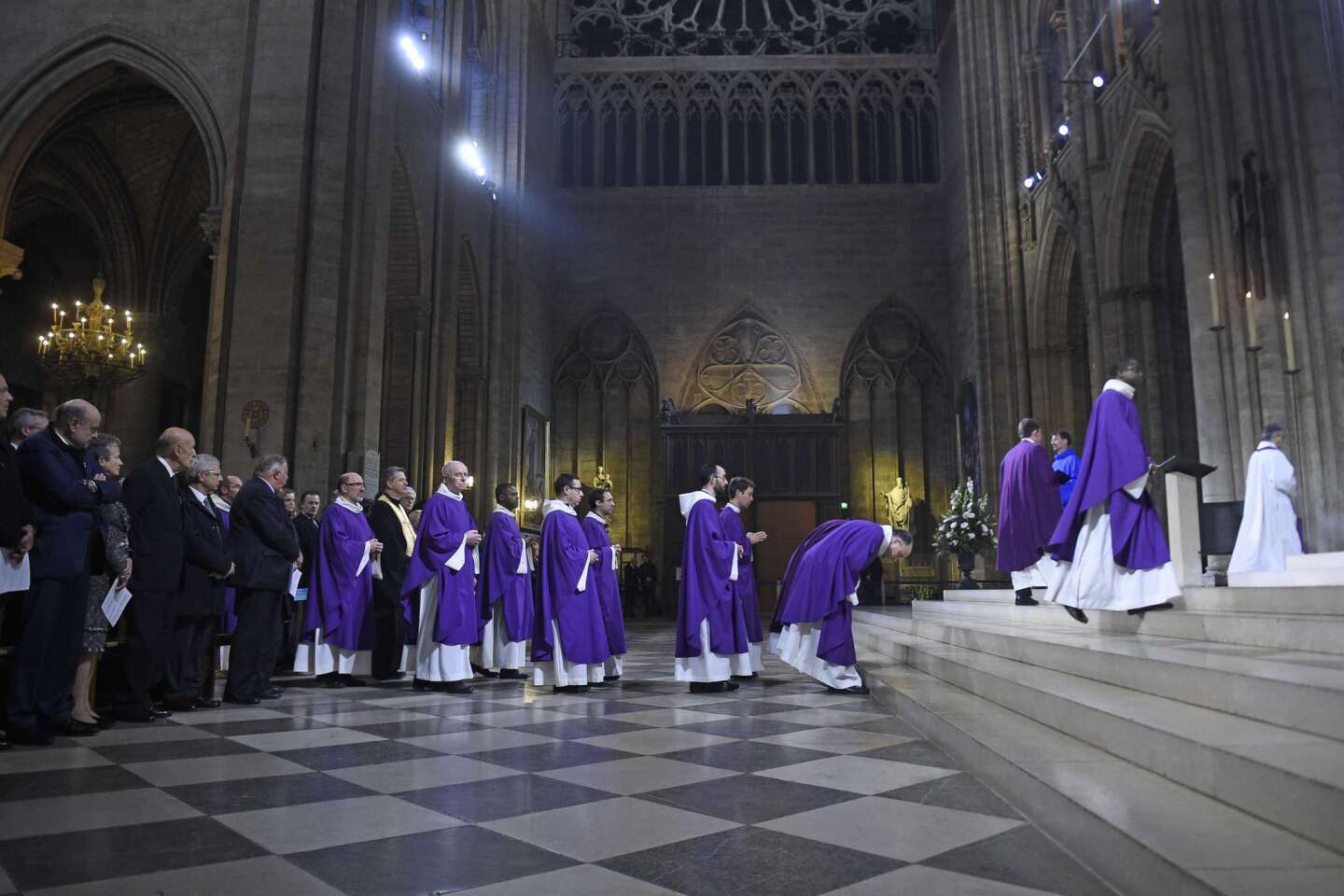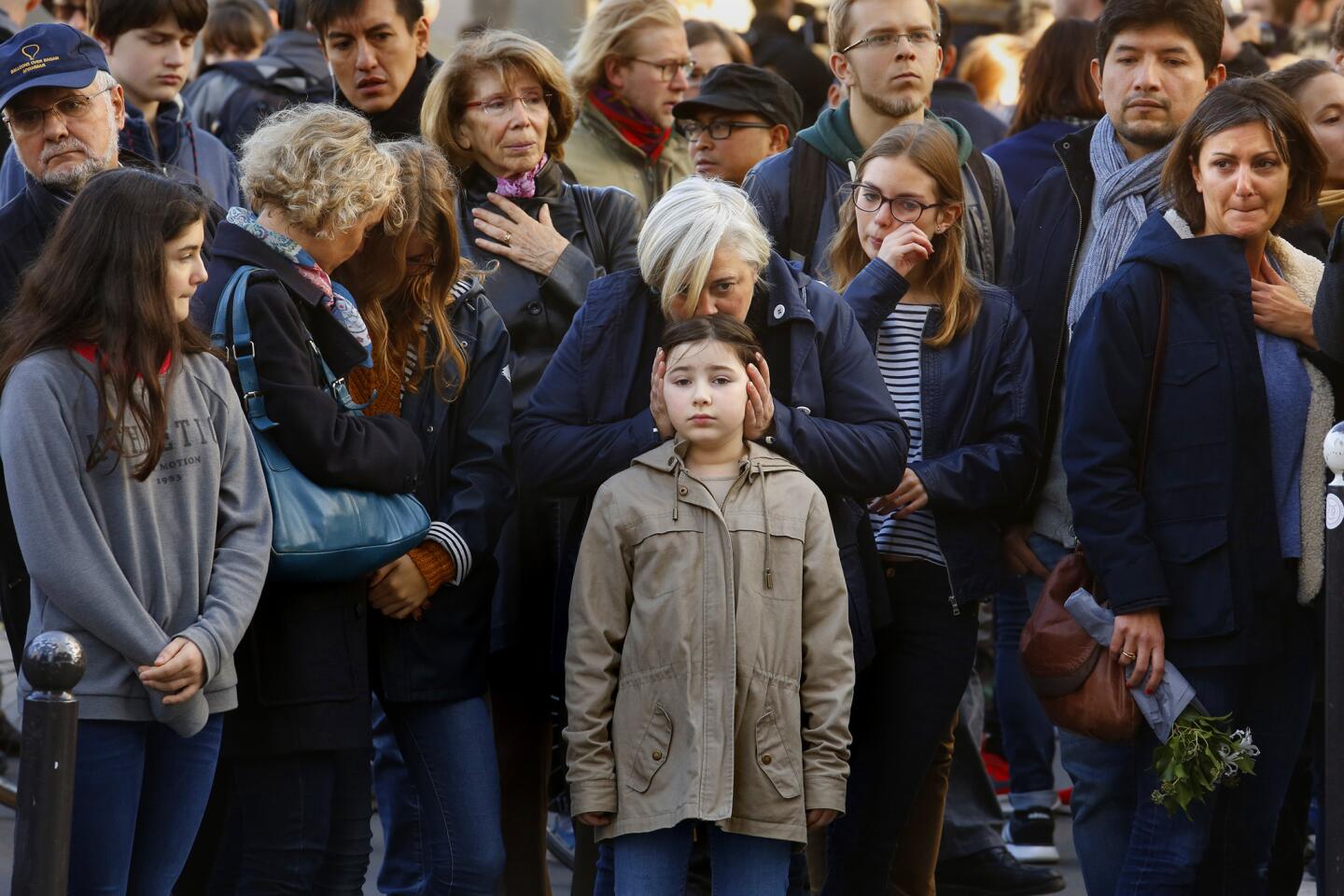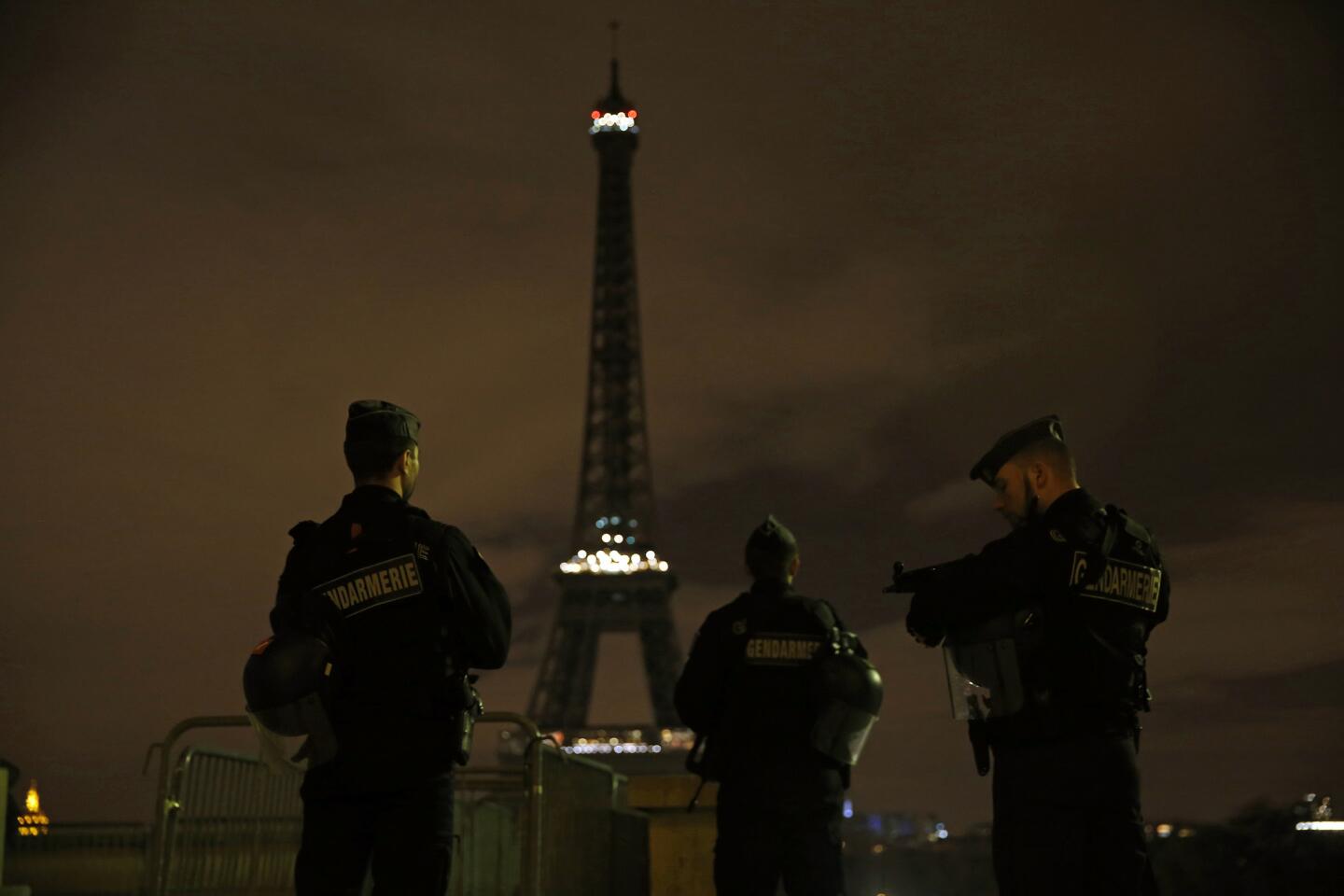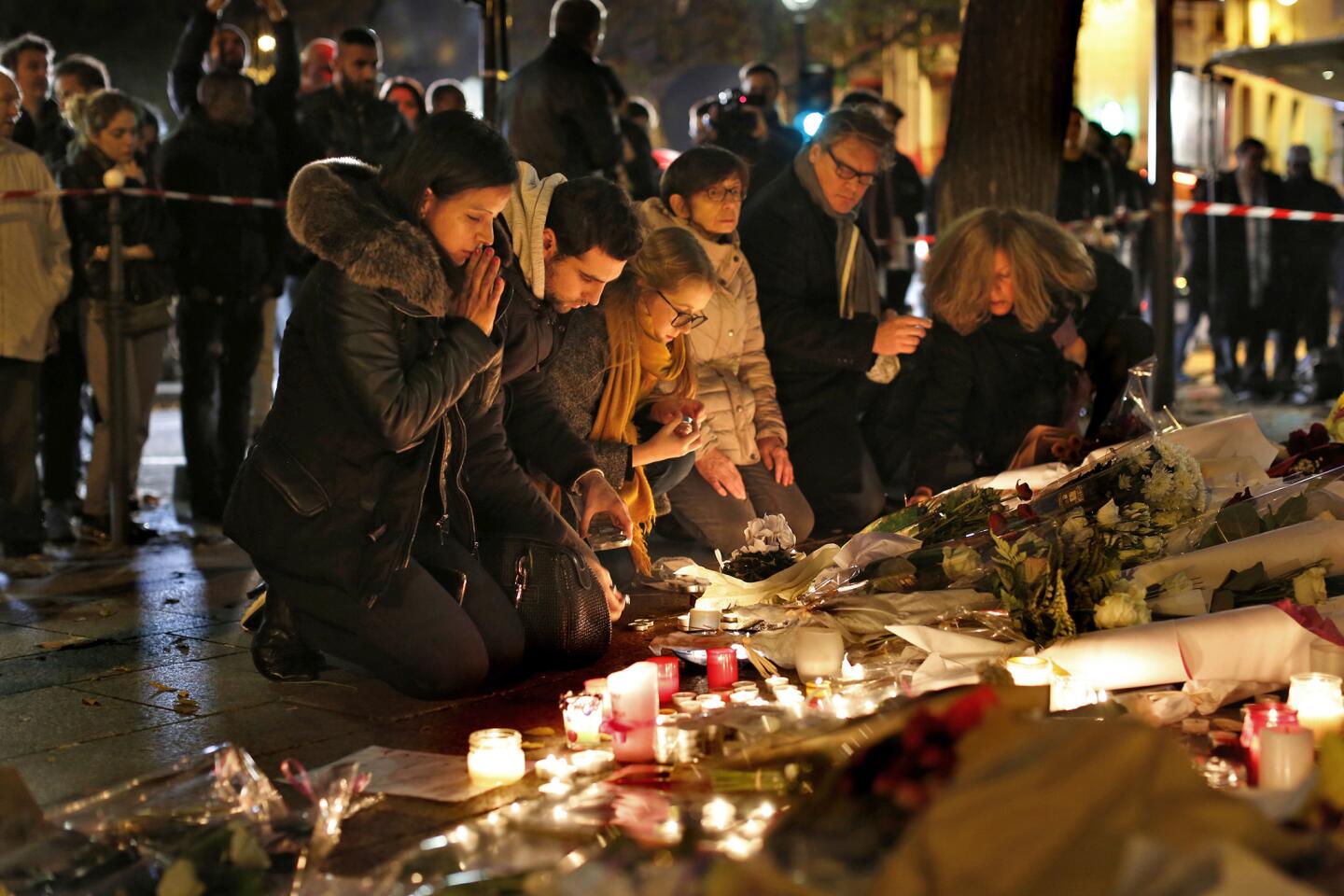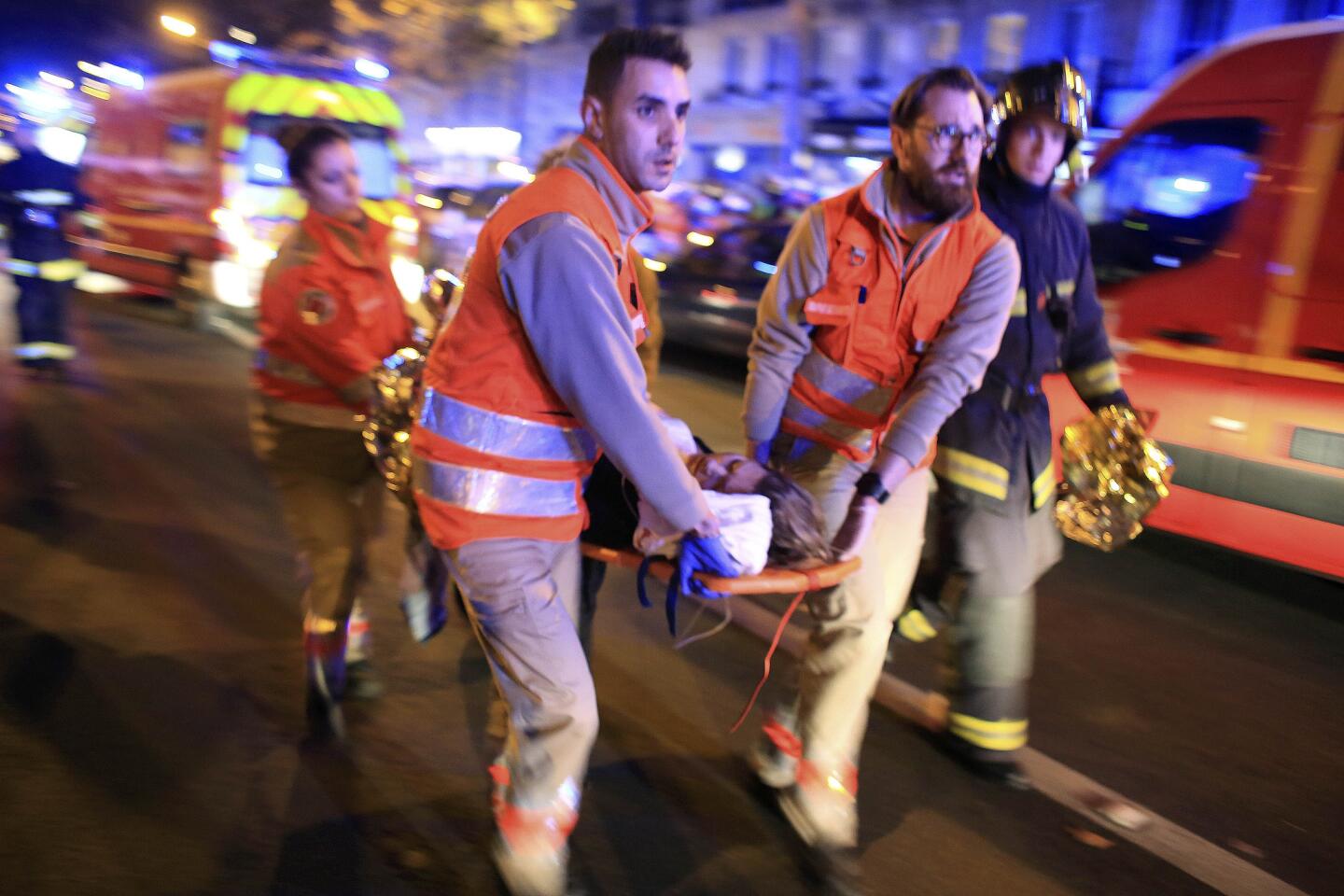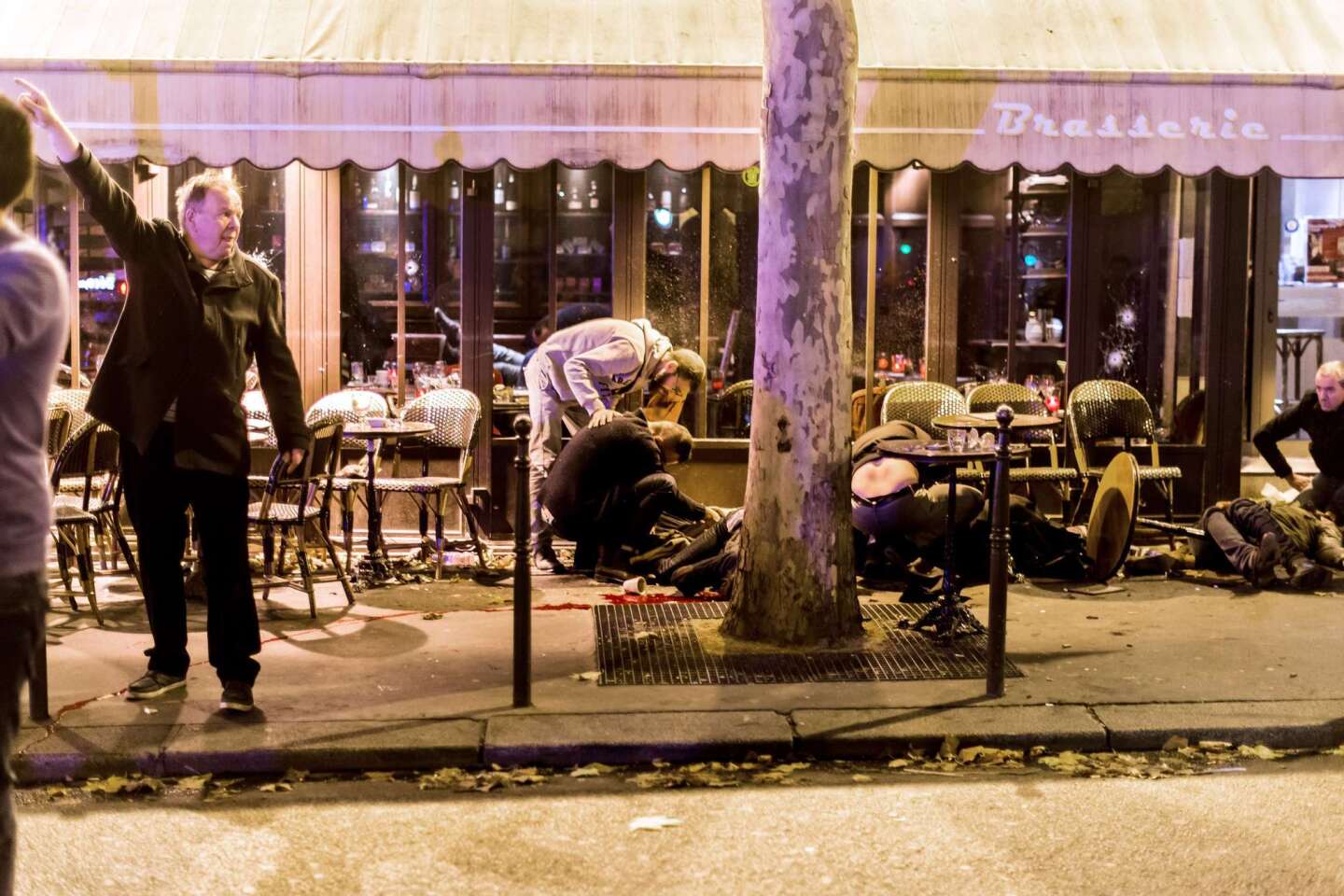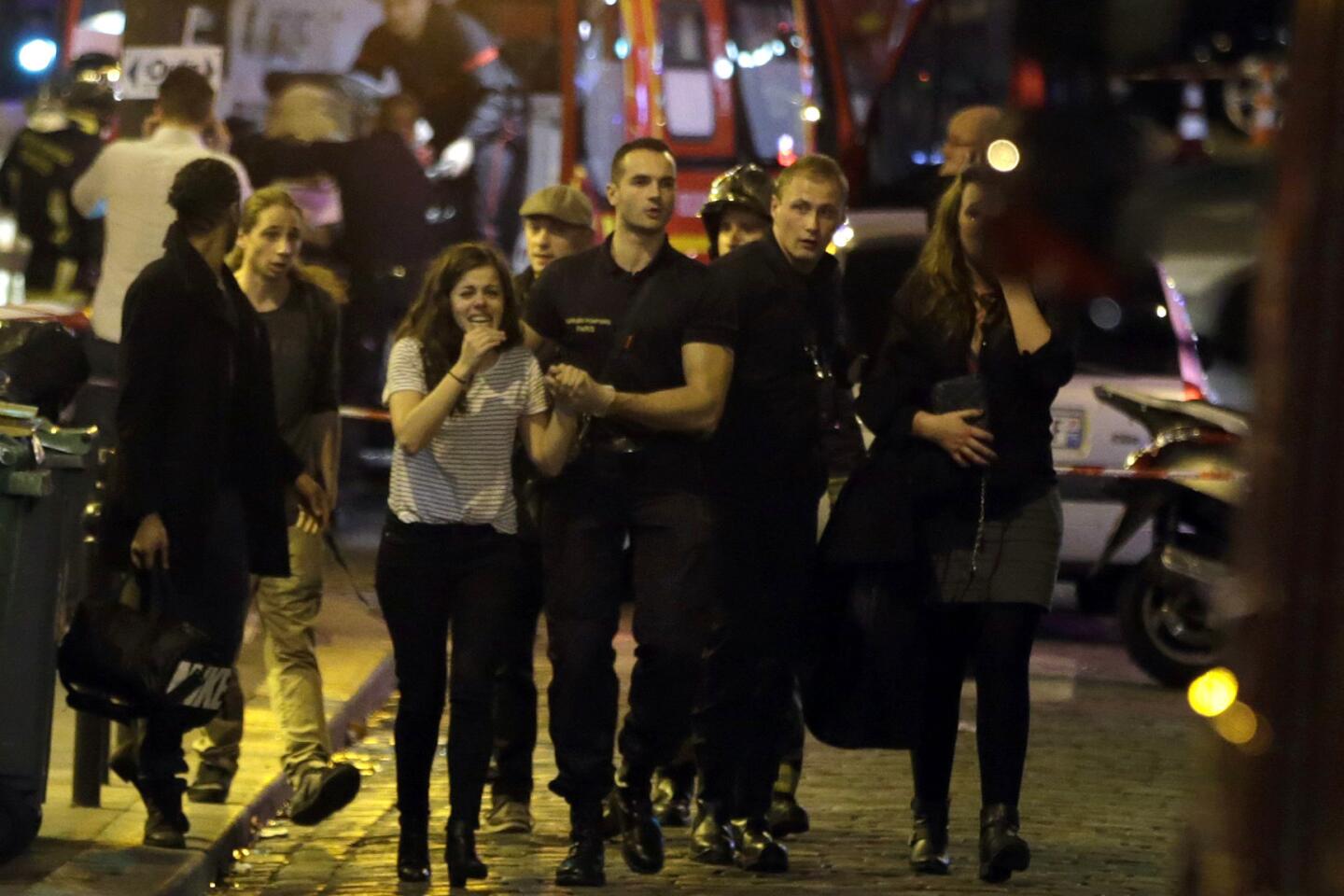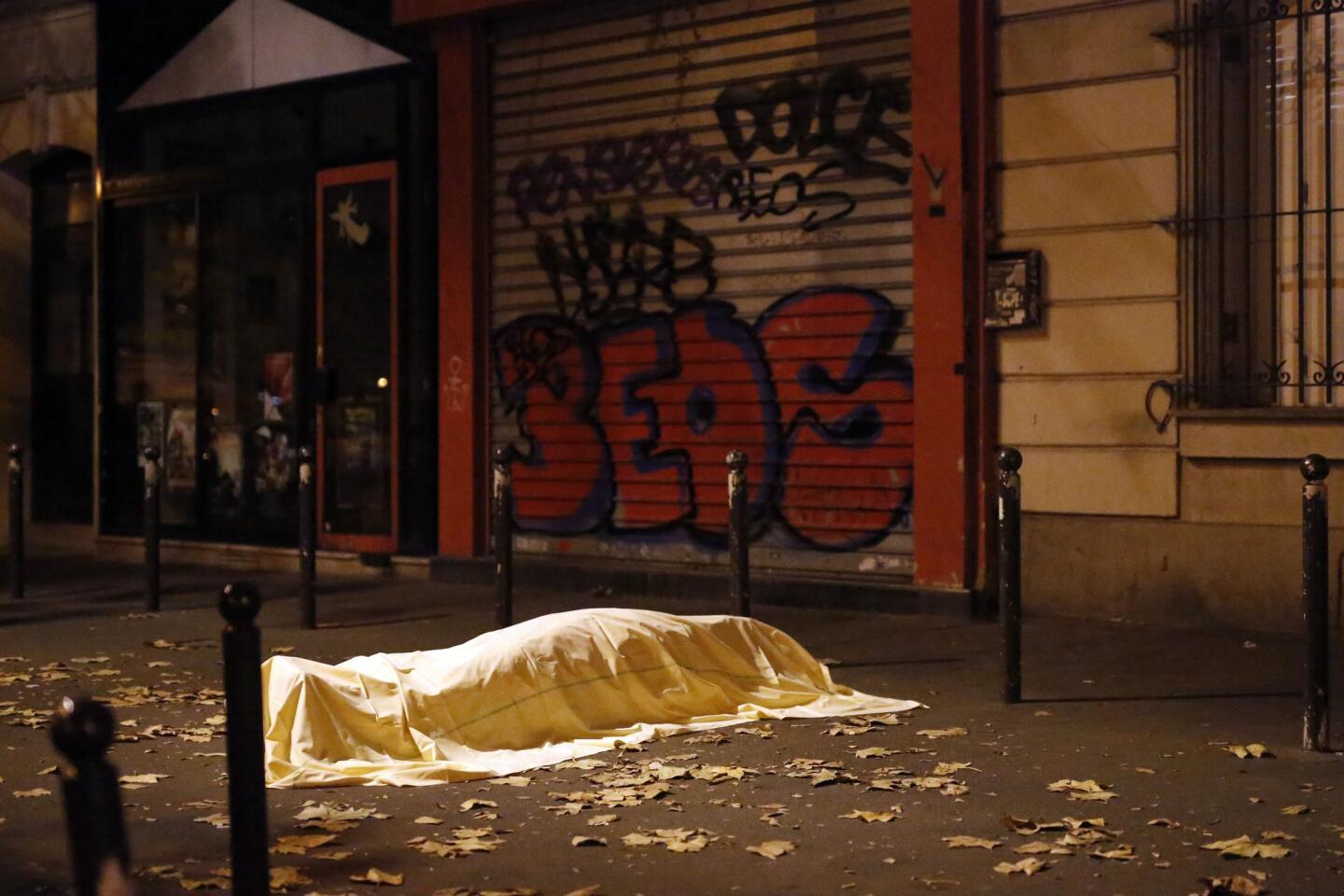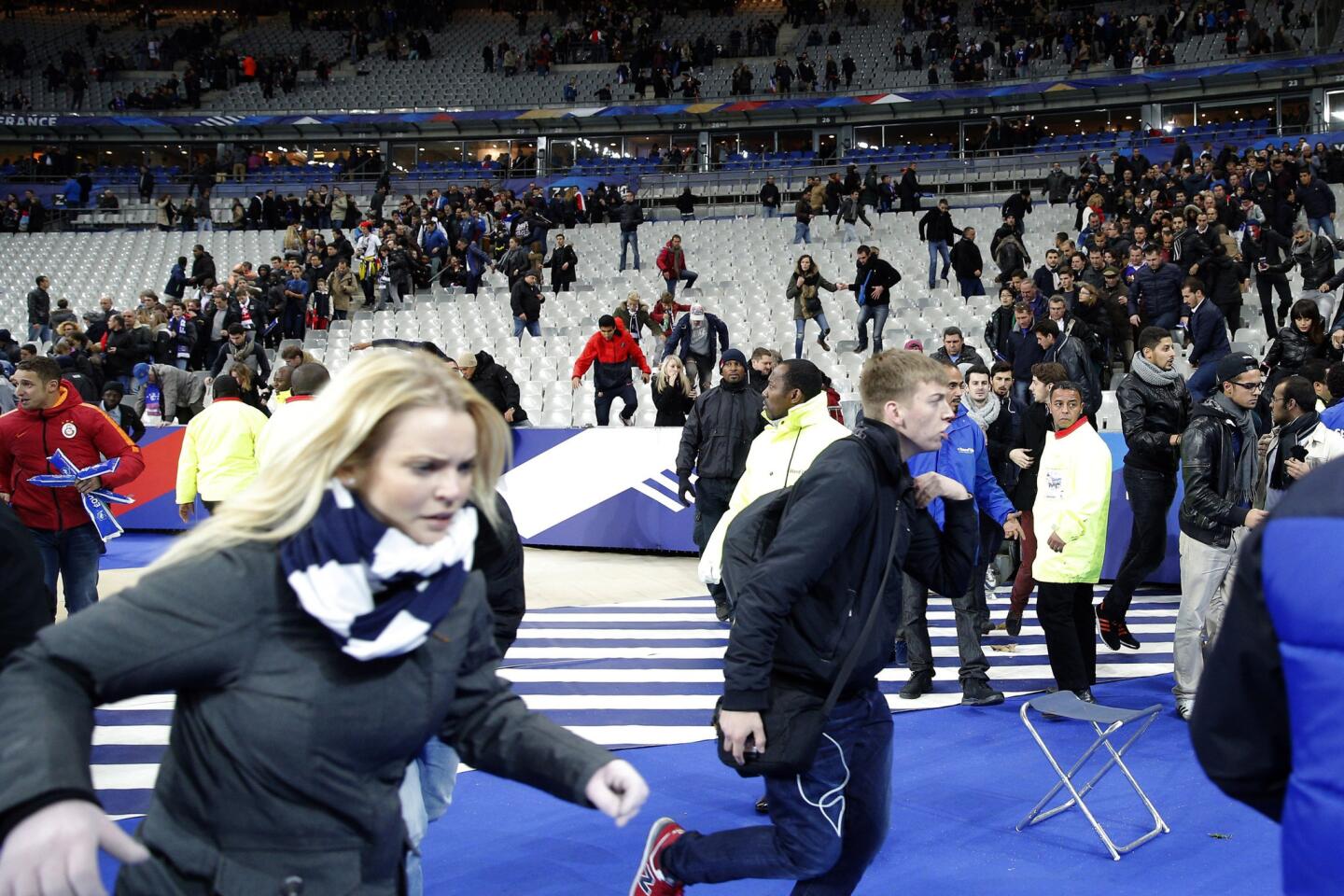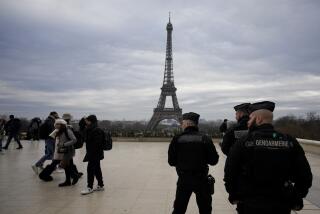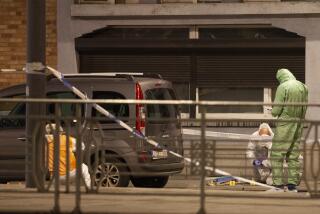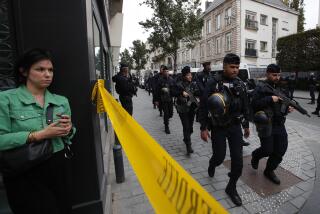Belgian militant suspected in Paris attack has history of failed plans in Europe
- Share via
reporting from BRUSSELS — In one photo, he flashes a crooked, toothy smile and sports a 5 o’clock shadow as he mugs for the camera with a Kalashnikov rifle cradled across his chest and a knit cap on his head.
In another snapshot, sporting a long beard and a camouflage cap, he cuts a self-consciously stern mien in front of what looks like a captured U.S. Humvee — bearing a Koran in one hand and the black flag of the militant group Islamic State in the other.
The highly stylized images, which appeared in the group’s glossy magazine, Dabiq, accompany an interview with a young man identified as Abu Omar al-Baljiki (the Belgian).
Boasting about his European operations against “the Crusaders” in “their homeland,” the subject of the laudatory profile sometimes sounds like he’s recounting video-game exploits. But he is apparently deadly serious: The gangly militant has been identified as a possible suspect in a variety of thwarted plots to attack churches, trains and police officers in Belgium and beyond.
Now, there are suggestions that the 27-year-old son of a Moroccan immigrant shopkeeper — whose real name is Abdelhamid Abaaoud — may have been the mastermind of last week’s attacks in Paris that killed at least 129. A Belgian prosecutor said authorities have linked Abaaoud to the man French police have targeted in an international manhunt in connection with the terrorist rampage.
On Monday, Belgian authorities looking for the fugitive conducted a large-scale search in Abaaoud’s home turf in the Brussels district of Molenbeek St. Jean, which has become notorious as a generator of militant recruits bound for Syria.
Whether Abaaoud was indeed the brain behind the Paris massacre remains unclear.
But the lanky Islamist has become a kind of militant rock star with a nefarious specialty: Conceiving high-casualty clandestine assaults on his European homeland, plotting with fellow Belgian and French extremists who have traveled to Syria, especially those who are part of his hometown network in Molenbeek.
Abaaoud’s history, if it has unfolded as he tells it himself, seems to confirm what U.S. and European authorities have feared most: that the violent, Syrian-based Islamic State organization is expanding its operations outside the Middle East and has prepared its prized European operatives to carry out attacks in the West.
On Monday, CIA Director John O. Brennan warned that other planned Islamic State operations are likely already “in the pipeline.”
Abaaoud’s evolution from eager recruit out of the Belgian capital’s gritty back streets to suspected involvement in a meticulously planned series of six nearly simultaneous attacks has been unusually well documented.
In an active social media life since leaving Belgium for Syria in 2013, Abaaoud was first seen on the Internet as an online recruiter of would-be European extremists. He boasted of the glory of jihad to an audience of disaffected young European Muslims like himself.
His fanaticism soon was evident. He brought his 13-year-old brother, Younes, to join him in Syria. Back in Molenbeek, his hard-working father, Omar Abaaoud, was shattered.
“I have shame for my son Abdelhamid,” the father told a Belgian daily, La Libre, in January. “Why in the name of God would he want to kill innocent Belgians? Our family owes everything to this country.”
Western authorities have subsequently linked Abdelhamid Abaaoud to several plots on European soil, all of them lethal in conception if, at least until last week, thwarted in execution. He seems to revel in his status as a clandestine dispenser of terror.
In the Dabiq interview, he recounts how he and several confederates managed to slip back into Europe from Syria with the specific intent of attacking Western targets, a secret journey that took months of planning. The terror team’s ultimately successful infiltration highlights Europe’s vulnerability to such plots.
“All this proves that a Muslim should not fear the bloated image of the crusader intelligence,” he declares. “My name and picture were all over the news, yet I was able to stay in their homeland, plan operations against them, and leave safely when doing so became necessary.”
Once in Europe, Abaaoud and his confederates seemed to have no problem gathering a substantial cache of arms and explosives in a safe house in the eastern Belgian city of Verviers. Officials say the cell was planning a large-scale attack.
Belgian authorities ultimately uncovered the plot. A shootout with police in January led to the deaths of two of Abaaoud’s close associates, both natives of Molenbeek.
Abaaoud himself, however, managed to escape a continent-wide dragnet and return to Syria. He boasted that God had “blinded” his adversaries.
Media accounts in Europe, relying on law enforcement sources, have linked Abaaoud to several other attempted attacks in Europe, including a planned assault on a train between Amsterdam and Paris in August that was broken up by off-duty U.S. servicemen.
Yet a previous incident of carelessness somewhat undermines Abaaoud’s boasts of militant derring-do.
In the interview with Dabiq, Abaaoud recounts how a colleague lost a camera that included images of Abaaoud and other militants in Syria. The images ended up in the hands of a Western journalist and soon caused revulsion in Europe.
Abaaoud appeared in the video cavalierly driving a pickup truck dragging a tethered group of half a dozen corpses through a plowed field. Abaaoud seemed to cackle from behind the wheel as the grisly tow line kicked up dust.
The video appeared last year, and the young militant feared his cover had been blown in the West. But not completely, apparently. In the Dabiq interview, Abaaoud recalled how an “officer” in an unspecified country stopped him and seemed to compare his face to the image from the video.
“But he let me go, as he did not see the resemblance!” Abaaoud said with apparent glee. “This was nothing but a gift from God.”
Twitter: @mcdneville
MORE ON THE PARIS ATTACKS
Momentum builds among states to reject Syrian refugees after Paris attacks
Terror in Paris: What you need to know
Biden: Islamic State does not pose ‘an existential threat’
More to Read
Sign up for Essential California
The most important California stories and recommendations in your inbox every morning.
You may occasionally receive promotional content from the Los Angeles Times.
